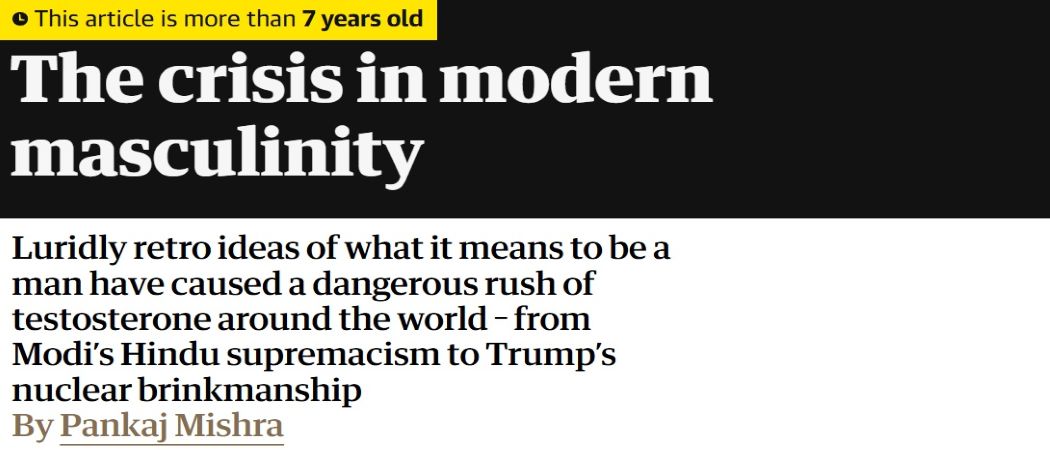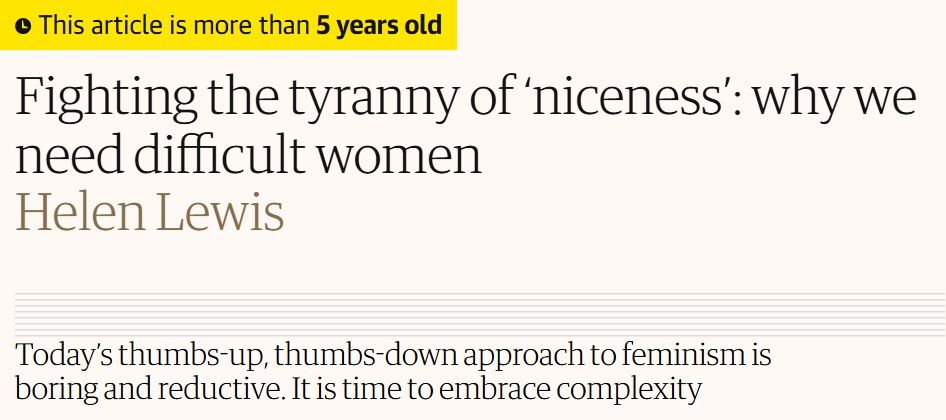The Crisis in Modern Masculinity

This article traces the historical evolution of modern masculinity, revealing the politicization and pathologization of the 'strong man' fantasy on a global scale, and critiques how patriarchy shapes oppressive roles for both men and women.
Related Topics
Pankaj Mishra unveils the deep crisis of global masculinity in this article. He points out that from Hindu nationalist Godse to leaders like Trump, Putin, and Duterte, modern political culture is saturated with a pathological pursuit of the “strong man” image. This masculine fantasy not only oppresses women but also traps men themselves.
Core Arguments and Critical Dimensions
The Politicization of Masculinity: The article traces how, since the 19th century, industrialization and imperialism shaped the ideal of the “strong man” and bound it to nation, race, and power. This fantasy reached its peak in fascism and has been revived in contemporary right-wing populism.
Global Expansion of Patriarchy: Mishra points out that Western modernity established a global order through the division of gender and race, where women were excluded from political and economic power while men were forced to assume the “strong” role.
Anti-feminism and Fear Psychology: From Godse to Jordan Peterson, many male thinkers and political figures view feminism as a threat, attempting to restore lost privileges through “reshaping masculinity.”
Male Fragility and Suffering: The author emphasizes that men are also victims of gender norms. They are more prone to alcoholism, suicide, and psychological trauma, yet cannot express vulnerability due to social expectations. This repression leads to violence, hatred, and political extremism.
Cultural Representation and Body Politics: The article analyzes how male body images from Hollywood to Bollywood have been politicized, becoming symbols of nationalism and male power. Muscles, violence, and sexual characteristics are used to mask social anxiety and identity crisis.
Deconstructing Fantasy, Moving Toward Empathy
Mishra calls for us to abandon the fantasy of “masculinity” and face its historical origins and real consequences. He quotes Simone de Beauvoir’s famous saying: “One is not born, but rather becomes, a woman,” and points out the same is true for men. Only by acknowledging male fragility and complexity can we truly break out of the cycle of gender oppression.
This article was summarized and written by Copilot based on The Guardian article “The crisis in modern masculinity.”
Related Articles

Fighting the Tyranny of 'Niceness': Why We Need Difficult Women
This article critiques the expectations of 'perfection' and 'likability' in contemporary feminism, calling for recognition of the complexity and contradictions within feminism, and embracing those 'difficult women' who are nonconformist, hard to categorize, but drive change.

反对‘温顺暴政’:我们为何需要棘手的女性
本文批判了当代女性主义中对‘完美’与‘可爱’的期待,呼吁正视女性主义内部的复杂性与矛盾,接纳那些不合群、难以归类但推动变革的‘棘手女性’。

现代男性气质的危机
本文追溯了现代男性气质的历史演变,揭示了全球范围内对‘强壮男性’幻想的政治化与病态化表现,并批判了父权制如何塑造了男性与女性的压迫性角色。
Support Our Work
If this content has been helpful to you, please consider supporting us to continue curating quality feminist resources
☕ Buy me a coffee讨论与评论
分享您对这篇文章的看法和感受
加入讨论
分享您对这篇文章的看法和感受
加载评论中...